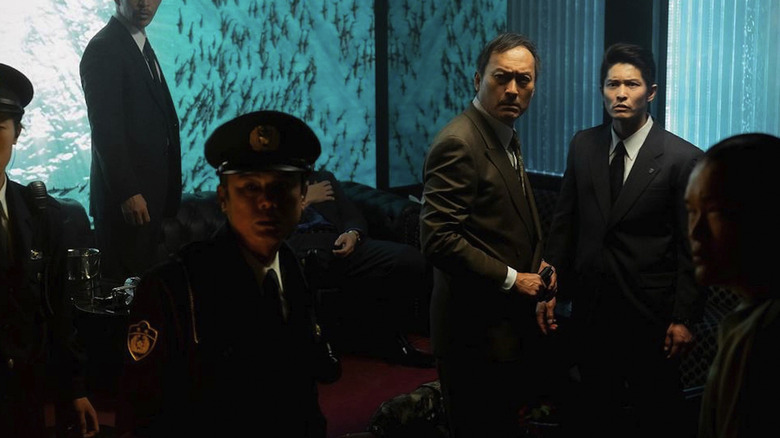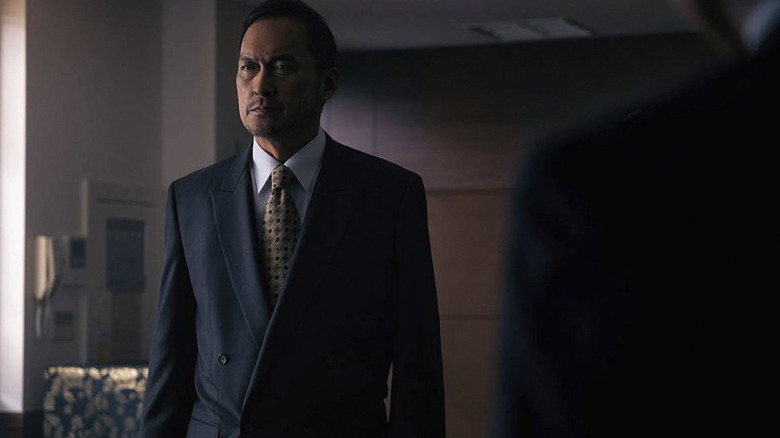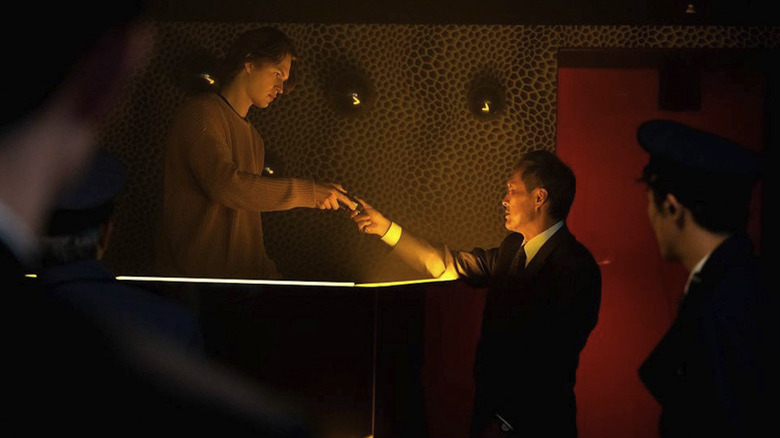Tokyo Vice Actor Ken Watanabe On The Duality Of His Character And Working With Michael Mann [Interview]
Whether you recognize him from movies like "Batman Begins," "Inception," "The Last Samurai," or from the "Let them fight" meme that spawned from "Godzilla: King of the Monsters," you know Ken Watanabe.
Since breaking out into a global star, the acclaimed Japanese actor has dipped in and out of TV miniseries and the occasional made-for-TV movie, but "Tokyo Vice," the new crime drama from playwright and creator J.T. Rogers, marks the first time in many years that Watanabe has been front and center in an international series. He plays Hiroto Katagiri, a Tokyo police detective who keeps a tenuous peace between the city's competing gangs and does everything he can to keep a lid on those boiling tensions. As the show progresses, he finds an ally in Jake Adelstein (Ansel Elgort), an American who scores a job writing for a Tokyo newspaper and who wants to expose corruption in the city. At first, it seems as if Katagiri is merely using Adelstein as a tool to help achieve his mission, but over the course of the first five episodes, the two develop an occasionally touching father/son type of relationship.
/Film spoke with Watanabe about why he was attracted to this project, working with director Michael Mann (who helmed the pilot episode), putting his own stamp on this character, and more.
'Cops busting gangs is a little boring'
Can you tell me how you approached playing a character like this?
It's been a long story. When I played "The King and I" on Broadway, director Bartlett Sher introduced me to J.T. Rogers. "He has a big and good project. Could you join about this?" And then I heard about the story. Cops busting gangs is a little boring, and the usual story. But there were two big points: A young American boy comes from United States, a newspaper writer getting underground to meet the gangs and the cops, and the hard experiences he has. It's so good. And then, the background is 1990. It's a big change of a society. Analog to digital, and feeling people's feelings about society change, it's like chaos. Those were the two big points [that convinced me] I want to join this project.
And then J.T. Rogers wrote my character so he's really mysterious. It's color like a gray: Not white, not particularly black, where it's a good guy or bad guy. It's like in between. Really interesting.
I'm curious if the name Michael Mann meant anything to you in the '80s and '90s. When did you first become aware of his work, and were you excited to work with him on this show in that first episode?
Yeah. He always tried to hide unrealistic feelings on the set. And also acting and wardrobe and props and the art department, everything. Every department worked so hard and could not sleep well [laughs], but they always enjoyed working with Michael Mann. We actors, also. [The mentality was] there's no need to act, just try to live on the set, live on the camera. In J.T. Rogers' world, each character has a deep and big background of a life. And then we need to focus on my character. I enjoyed playing my role.
'In the middle of the story is a big dynamic change of a situation'
I'm curious if there was a point during the production where you became so comfortable with inhabiting your character that you were able to say, "I know what's in the script, but I actually think that my character might do this instead." Was there ever a point where you were able to influence and shape your character in that way, even if it was just a little detail?
Yeah. I met [the real Jake Adelstein] twice on the set. He came on the set. Then I asked the cop [who inspired my character], who had a little different name, and he told me [that my character, Hiroto Katagiri] is a really gentle guy. He's a good father, good husband, good family, and he speaks softly and gently. But when he approaches the gangs, changeable face — so scary and then strictly strong. It's kind of a double faces. That's the really interesting thing.
Thinking back on your experience making the show, is there a particular scene or a particular moment that stands out that you were really proud of?
We [made] eight episodes, and in the middle of the story is a big dynamic change of a situation and relationship to Jake and Katagiri. Also the gang and cops. Everybody. So we cannot wait to show [it to the world].
"Tokyo Vice" premieres on HBO Max on April 7, 2022.


